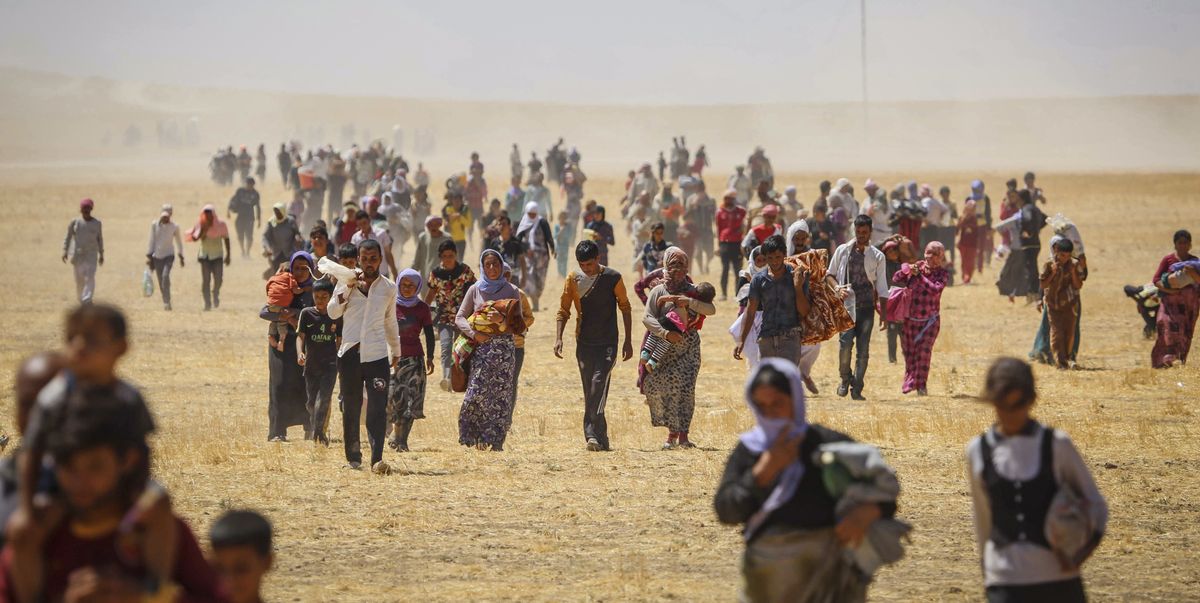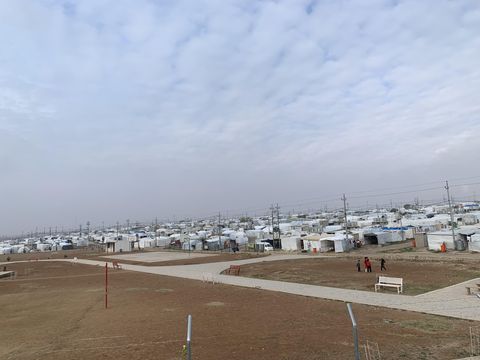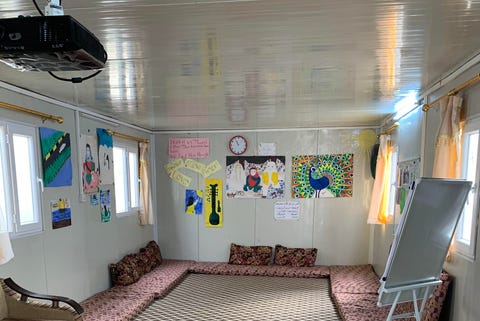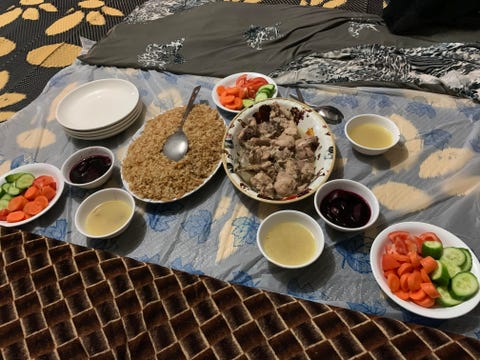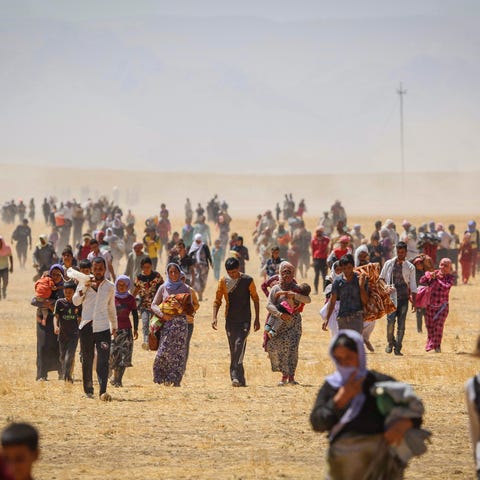
Anadolu AgencyGetty Images
When they fled they fled in cars, babies piled on the laps of children piled on the laps of women, a nesting doll of family members careening away from the only place they’d ever known. The cars might not seem worth noting, but their very existence made these families luckier than most; others from their village were forced to brave the mountain dark by foot. In August of 2014, the entire population of a religion was on the run from a jihadist militant group that wanted to kill and enslave them. How could they have known then that running would be the easy part?
For two days and two nights after she left, 36-year-old Fardouse did not sleep. She and her four young children had been in those cars as they zoomed away from Sinjar, a town in western Iraq where her family, part of a religious minority called the Yazidis, had lived for generations. Now they were staying with other refugees in a local middle school a few hours east in Duhok. She hadn’t heard from her husband Khider since they’d parted ways in Sinjar; he had chosen to stay behind to face ISIS. Several days later, when they were finally reunited, Fardouse realized how fortunate she was: the wives of 5,000 other Yazidi men were not so lucky.
Fardouse is one of an estimated 500,000 Yazidis displaced by ISIS’s short but brutal reign over parts of Syria and Iraq. Like many of her fellow refugees, she struggles with mental health issues stemming from the trauma she experienced. “I always had a headache and wasn’t feeling well,” Fardouse tells me through a translator of her first few months at Khanke refugee camp. “Coming from a big house to live in one tent, it’s very difficult.” She says she was overthinking and not sleeping, and struggling to come to terms with the fact that she would likely never return to Sinjar, which the Islamic State had all but destroyed in its attempts to commit genocide against the Yazidi people
Due to the overwhelming number of displaced people across Iraq, psychological treatment isn’t always easily available, but Fardouse has found an outlet with the Free Yezidi Foundation, a Washington D.C.-based non-profit that runs a women’s center at Khanke Camp. At the facility, situated across from a UNICEF-run primary school on the edge of the camp, women like Fardouse can learn everything from knitting to yoga to stress-management breathing techniques. There are Arabic and computer seminars, as well as a sewing class where women can create their own clothes to sell.
Aside from the center’s many classes, the Free Yezidi Foundation also seeks to destigmatize trauma across the camp, going tent to tent to teach families that what they’re feeling is normal.
“We introduce ourselves and say we’re here from the Yezidi Foundation to help normalize trauma after the 2014 genocide,” says Hala Haji, a translator and coordinator at the foundation. “We sit with them and we explain about trauma and we teach them some specific techniques for handling it. We have butterfly hug, we have breathing exercises, or how to support a person when you see someone is feeling sad and alone.”
Haji says she’s seen first-hand the difference this can make in the lives of the women in the camp. She recalled one woman who was attempting suicide up to three times a week; after 11 sessions with the Foundation, Haji says, the attempts stopped and her depression and anxiety improved. The woman is now stable, married, and has a new daughter.
The Free Yezidi Foundation is just one organization in the Duhok area offering basic services to the hundreds of thousands of refugees in the region. Others are going a step beyond, providing professional psychological support to those who need it. The Institute of Psychotherapy and Psychotraumatology at the University of Duhok, a masters program that trains therapists to help address the psychological stress created by ISIS, recently graduated its first class of students.
After we visit the center and meet some of the Yezidi women who’ve sought solace there, Fardouse invites me for lunch at her family’s home. It’s as comfortable as a tent can be in these conditions, well-insulated but with a canvas roof that leaks when it rains. A TV plays Cartoon Network Arabia and small children take turns peeking their heads inside the tent to catch a glimpse of the blonde woman who’s come for lunch. Back in Sinjar, in her spacious five-room house, Fardouse baked the best sweets in town—flaky baklava, thick triangles of fried dough served with jam and cheese and sweetened black tea. Now, in this tiny tent, she has no oven at all.
“To be honest, we don’t know what the future holds,” Fardouse says when I ask about her hopes. When she hears the Iraqi national anthem now, she cries.
